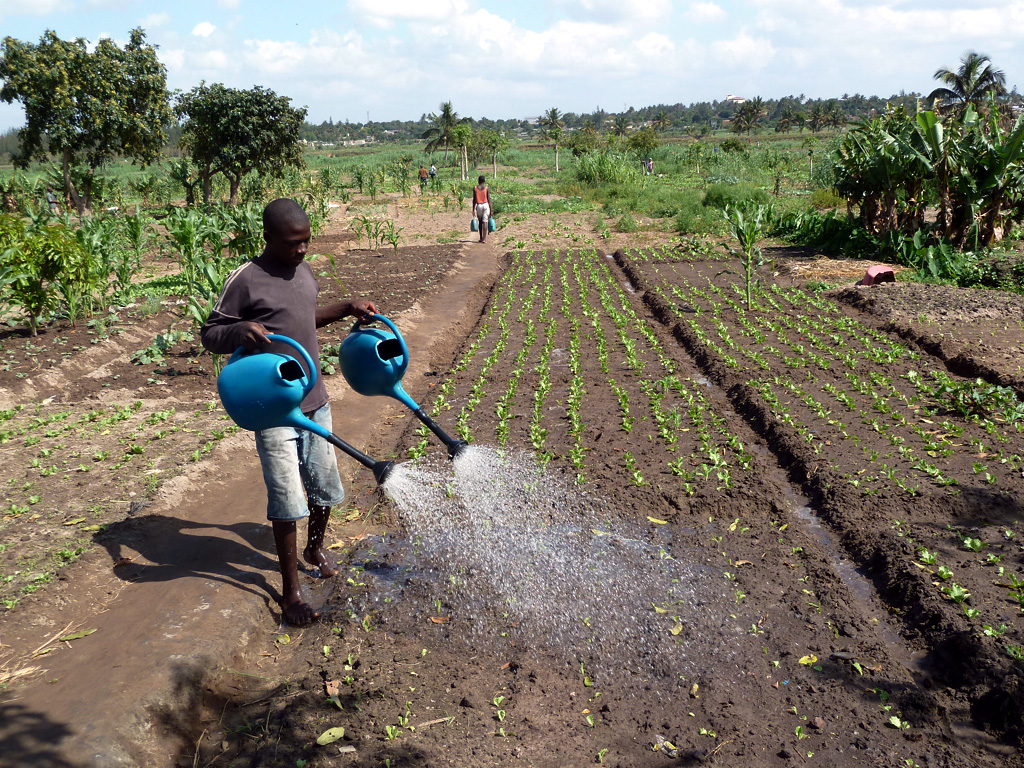Vegetable cultivation in Mozambique
Copyright© GlobalHort Image Library/Imagetheque, via flickr, CC BY-NC 2.0
Core area “Peaceful and inclusive societies” Making public authorities more efficient
German activities
The aim of German development cooperation in this field is to support national, regional and local administrative units in applying the principles of good financial governance. Support is being provided to municipalities to help them increase revenue, improve services – in areas such as construction permits, registration of businesses and collection of taxes and fees – and enhance communication with citizens.
In order to increase transparency and prevent corruption, Germany is also supporting efforts to improve internal financial and administrative controls and to build capacity at Mozambique's supreme audit institution. This institution now audits, on the basis of newly developed procedures, all contracts that are related to the extractive sector or to complex public construction projects such as roads and airports.
In selected municipalities, Germany is helping to develop the social and economic infrastructure. Germany is also supporting efforts to help the country adapt to the impact of climate change.
Transparency in the extractive industries
With increasing money being invested in the extractive sector, the government of Mozambique faces the challenge of administering government revenues from this sector in a transparent way and using them for the benefit of the entire population. In 2009, the country joined the Extractive Industries Transparency Initiative (EITI).
German experts are advising the Ministry of Mineral Resources and Energy and also districts and local authorities in mining areas on improving management of the extractive sector. The annual report of the supreme audit institution submitted in 2017 contained, for the first time, a separate chapter on the extractive sector showing the origin and volume of government revenue.
A validation assessment found in 2019 that the country had made significant progress in implementing the EITI Standard.
Displacement and migration
Some 950,000 people have been displaced by protracted violence in the northern province of Cabo Delgado (see Political situation). The BMZ is providing support to internally displaced people and host communities in the conflict region and neighbouring provinces. Among other things, this support is geared towards better food supply and access to sanitation and education.
As at: 18/01/2023
